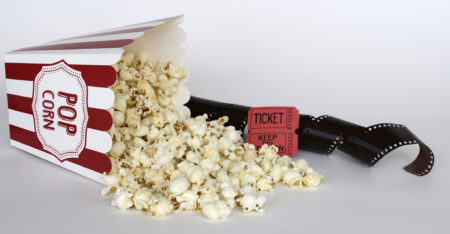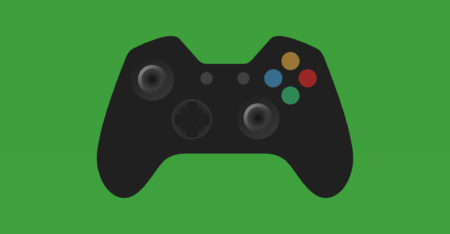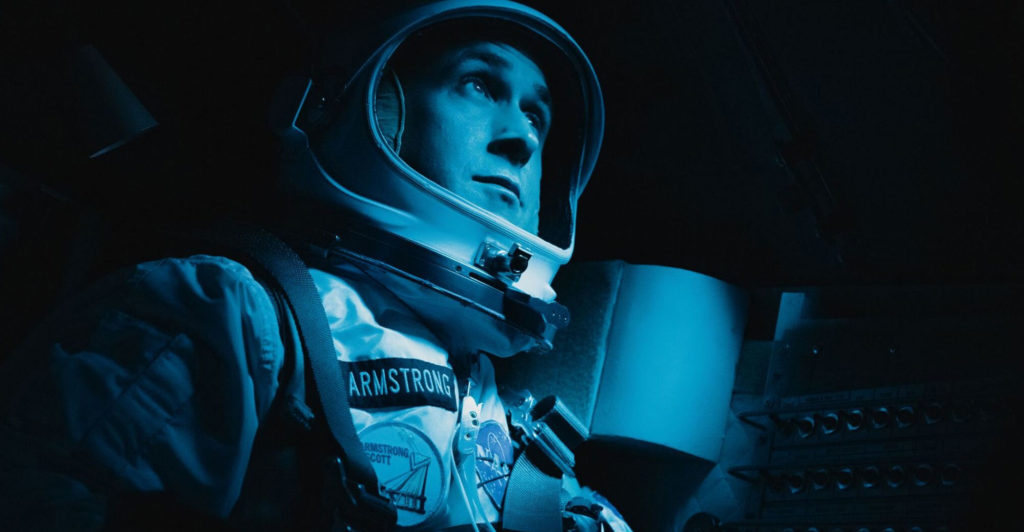Who says cinema is dead? From intimate indie dramas to massive blockbusters, from slick thrillers to futuristic romances, and from downbeat dystopias to nostalgic remembrances of the past, the best feature films of 2014 showed that the movies are as vibrant and alive as ever. Here’s our pick of the films released to South African cinema screens this year.
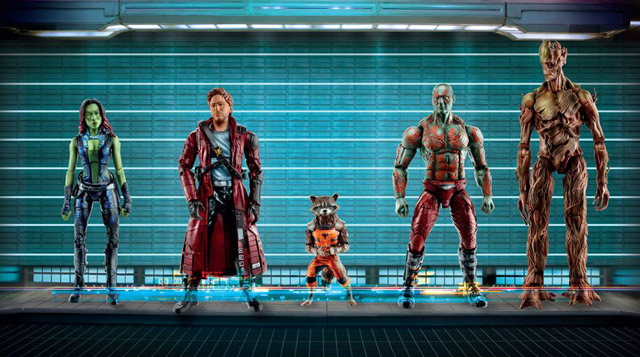
 Guardians of the Galaxy
Guardians of the Galaxy
Just like the 1970s pop-rock tunes it features on its soundtrack, Guardians of the Galaxy is big, slick, sugary and full of hooks that are impossible to resist. Based on a relatively obscure crew of characters in the Marvel comic book universe, Guardians of the Galaxy is a joyful B-movie with A-scale production values.
Director James Gunn brings a slightly rude sense of humour and plenty of soul to the fantasy actioner, but he also has a deft hand at the big special effects moments. The charismatic cast — including Chris Pratt, Zoe Saldana, Dave Bautista and the voices of Vin Diesel and Bradley Cooper — has fun with the material. Who needs a new Star Wars movie when this is so good?
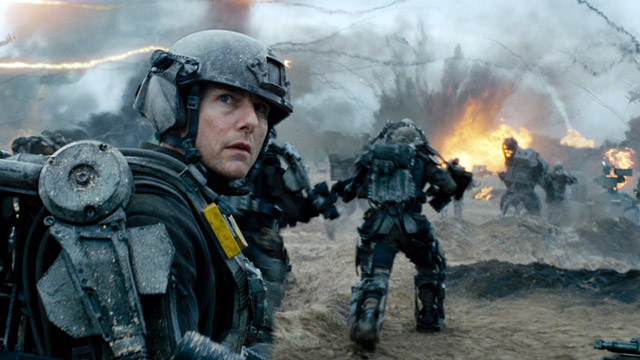
 Edge of Tomorrow
Edge of Tomorrow
It flopped at the US box office, but the Tom Cruise vehicle Edge of Tomorrow is one of the finest action films of the year. Director Doug Liman handles a time-looping narrative, about a soldier destined to fight the same battle over and over again, with unfailing dexterity and manages his set pieces with muscular confidence.
The Groundhog Day-like concept of a man repeatedly reliving the same day holds potential to become repetitive, but Liman manages to make each day feel fresher for his audience than it does for the hapless Cruise character. The action scenes are slick and propulsive, blending practical effects and computer-generated imagery into seamless spectacle.
And there’s a wicked vein of macabre humour in the film as Cruise’s character tries — and fails repeatedly — not to die in some gruesome fashion as he fights the film’s alien antagonists again and again.
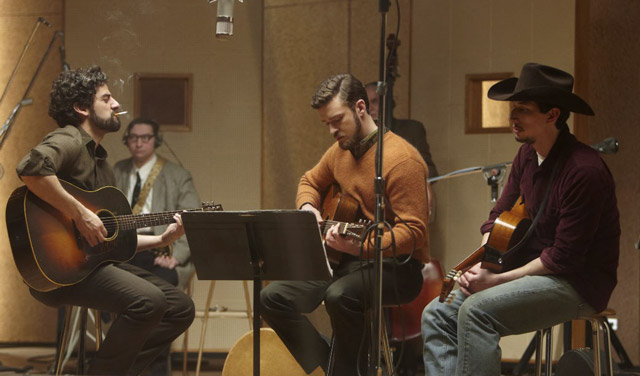
 Inside Llewyn Davis
Inside Llewyn Davis
In the bleak but funny Inside Llewyn Davis, the Coen Brothers take a sardonic look at the travails of a 1960s folk musician who is too stubborn to compromise for commercial success. It’s another minor classic for the Coens, who are surely the most inspired filmmaking team of the past 30 years.
As a typically luckless Coen protagonist, actor/singer Oscar Isaac delivers a breakthrough performance. He’s ably supported by a fiery Carey Mulligan as a bitter lover and John Goodman as a heroin-addicted jazzman.
But what really makes the film so special is the authentically folksy soundtrack — overseen with great care from T-Bone Burnett — and the desaturated winter landscapes captured by director of photography Bruno Delbonnel. This is a profound film of great ambition, made with real artistry and craftsmanship.
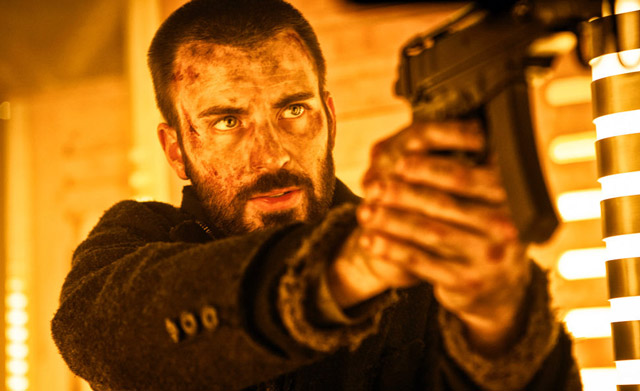
 Snowpiercer
Snowpiercer
Snowpiercer’s ferocious nihilism, lacerating satire and snarling disgust make Neill Blomkamp’s similarly themed Elysium look as docile as a lapdog. The first English-language film from Bong Joon-ho — the Korean director responsible for the amazing monster film The Host — hurtles towards an explosive endgame with the propulsive fury of a videogame.
The premise is this: after a climate experiment turns the earth into a wintery wasteland, what remains of humanity survives on a massive train that is powered by a perpetual motion engine. The working class lives in the rear, subsiding on protein bars made from mushed insects. At the head of the train, the rich feast on steak. And what starts off as a simple parable of class warfare quickly gets entirely more complicated and screwed up.
Chris Evans, best known for apple pie roles such as Captain America, leads a revolt with the aim of reaching the front of the train and dislodging the Randian man who built and rules it. But he’ll first need to get past an army of goons, led by the hideously officious and bombastic Minister Mason (played by Tilda Swinton with ghoulish glee and a terrifying set of dentures).
Joon-ho has an eye for action. But he also has a love for film, with playful references to Fellini, Kubrick and Gilliam on the way to the last coach.
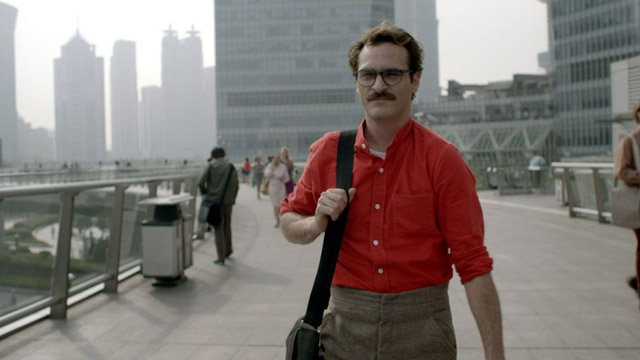
 Her
Her
There are many films about the near future on this list of the year’s best, but none of them are quite like Her, a kooky romance about the relationship between a shy, soulful writer (played wistfully by Joaquim Phoenix) and a bright, chipper operating system that can learn, feel and grow (voice of Scarlett Johansson).
This tech paradise — one that would make Steve Jobs smile — seems more plausible than an ape apocalypse or a climate cataclysm. Here, curves are rounded, the colours are pastels, the fashions are bland but buttoned-down, and the transport, even in Los Angeles, is public and powered by clean energy. And a husky-voiced artificial intelligence has taken the logical next step into sentience — and promises to make love as user-friendly as an iPad.
Director Spike Jonze, who has probed love and desire in offbeat fantasies like Being John Malkovich, has created a pensive meditation about how technology both connects and isolates people from each other and their own inner lives. Droll, generous in spirit, somewhat soppy, and yet vaguely creepy, Her taps right into the fears and hopes of the zeitgeist.
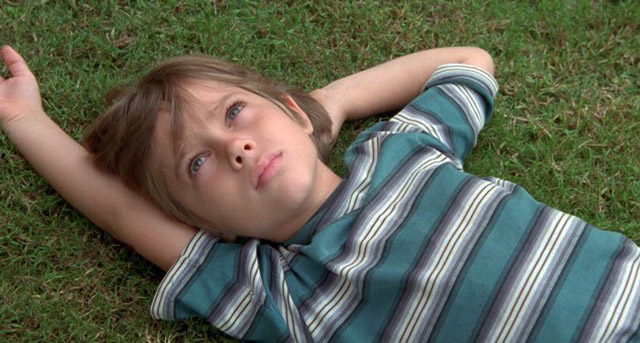
 Boyhood
Boyhood
Imagine the dedication it took from director Richard Linklater and his cast to film Boyhood for a few weeks each summer across 11 years. We see the boy (Ellar Coltrane) grow into a young man in a tender, understated coming-of-age story. But even more affecting is watching time etch its lines on the faces of his divorced parents, the worried, hardworking mom played by Patricia Arquette and the cool but unreliable dad (Ethan Hawke, who has also aged onscreen with Linklater across the 20 years that span the Before trilogy).
Over the years, Linklater has carved out an authentic piece of lived-in art from what seems at first to be a slip of script. The film has been heavily praised by reviewers around the world and has a perfect 100% score on Metacritic. One worries whether such an unassuming work can shoulder the hype. Its style is low key and its moments of epiphany come discreetly. Boyhood is epic in scope but intimate in presentation, and surprises with profound revelations in the quietest moments.
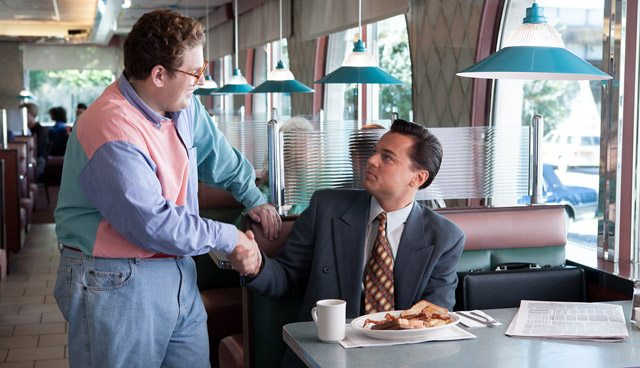
 Wolf of Wall Street
Wolf of Wall Street
The biggest surprise about the debauched Wolf of Wall Street is how damn funny it is. Director Martin Scorsese has flirted with dark comedy in After Hours and The King of Comedy, and Good Fellas has its moments of black humour. But this must be the first Scorsese film to elicit belly laughs through slapstick. The standout scene in the film sees a rubber-limbed Leonardo DiCaprio showing off his underappreciated gift for physical comedy.
Playing a pill-blitzed Jordan Belfort, he crawls and flops through a chic country club to get to his sports car and leaves a trail of wreckage behind him. Rather than wagging his finger at the intemperance, Scorsese paints the real-life Wall Street scammer as a modern Caligula, only with more dwarf-tossing and cocaine. Befitting a tale of such bacchanalian excess, Wolf of Wall Street is too long, but it’s also a cutting and entertaining swipe at the culture that breeds greedy opportunists like Belfort.
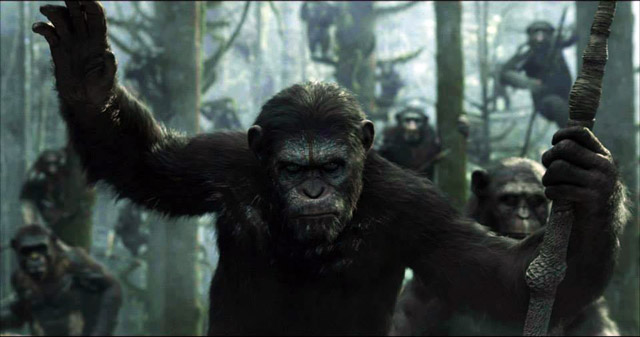
 Dawn of the Planet of the Apes
Dawn of the Planet of the Apes
Some ragtag remnants of humanity fire up an electricity plant in Dawn of the Planet of the Apes. The world-weary but resolute notes of The Weight by The Band kick in and illuminate a path for these survivors of a brutal epidemic that has culled most of the human population. It’s a brief flash of light and hope in the gloomiest blockbuster of the year. That scene alone — that piece of masterful pacing and framing — is enough to make Dawn my favourite big budget science-fiction film of 2014.
Dawn is a technical marvel, using cutting-edge CGI and motion-capture to bring its apes to life. But it puts all of this wizardry to work to show how the society of the apes is evolving in the wilderness while mankind is regressing into savagery in what’s left of San Francisco. There are big set piece moments, but the film is always grounded enough to go back to the characters.
Under the CGI used to create Caesar — the wise and benevolent leader of the apes — is Andy Serkis delivering yet another standout motion-capture performance. His counterpart on the human side is an idealist played by Jason Clark. There’s a glimmering hope of reconciliation between the species, but vengeful ideologues on both sides are determined to go to war.
Dawn is tense, exciting and entertaining. It’s also smarter and more nuanced than its predecessor, Rise of the Planet of the Apes. Sure, Dawn can be a little heavy for popcorn entertainment, but there’s also enough spectacle and wonder in here to stop it from being completely depressing.
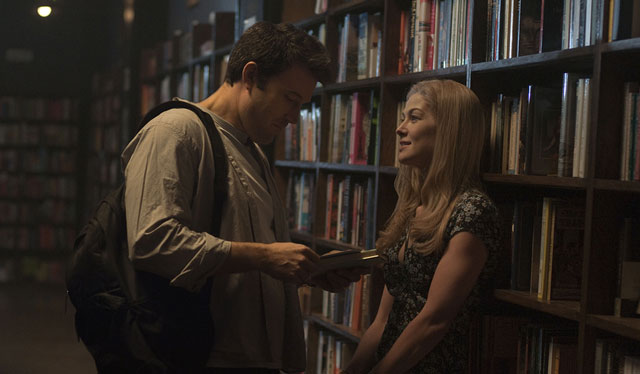
 Gone Girl
Gone Girl
David Fincher is one of the most consistent directors in Hollywood and he’s at his cynical best in this adaptation of Gillian Flynn’s acclaimed 2012 crime novel. Both a savage dark comedy and a brooding thriller, this story about the search for a missing woman is gripping and stylish. Ben Affleck is perfectly cast as the glib, none-too-bright husband who comes under suspicion when his wife disappears.
But the film belongs to Rosamund Pike as the icy, neurotic spouse. She’s a complex and fascinating character, brought to life in tightly controlled performance by the underrated actress. Alfred Hitchcock would probably have loved to have cast her as one of his blondes, and he would have been proud to have made have made a film with the elegance and psychological acuity of Gone Girl.
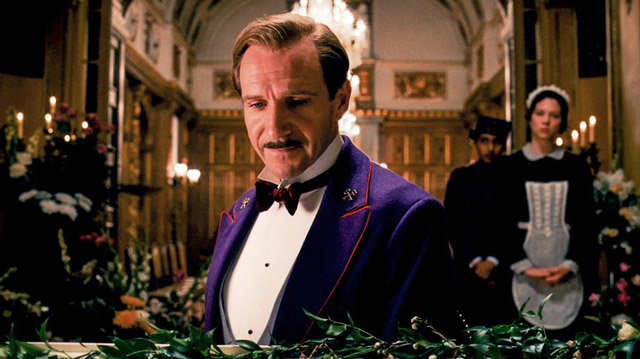
 The Grand Budapest Hotel
The Grand Budapest Hotel
A sad sigh for a lost age, The Grand Budapest Hotel is the most mature and affecting film that director Wes Anderson has made to date. It carries all the hallmarks of an Anderson film — the fussy production design, the dust-dry humour, the obsessive colour-coding — but it also has an emotional depth to it that is new for the director. His sweetness and preciousness is still there, but there’s a strong taste of vinegar under the sugarcoating.
Constructed like a Russian doll with four nested narratives, The Grand Budapest puts Ralph Fiennes in its centre as a dashing concierge working at an alpine hotel in the fictional European Republic of Zubrowka. In between running a meticulous operation, he shows his apprentice Moustafa (Tony Revolori) the ropes of the business and provides amorous services to the dowagers who stay at the hotel.
As Gustave H, Fiennes cuts an absurdly fastidious figure of proprietary who throws incongruously fruity language into his speech. He’s an anachronism even in the film’s setting between the two world wars, and his world of splendour and refinement is soon to be swept away by a tide of barbarism.
It’s great fun to see Fiennes enjoy himself, bouncing like a pinball off Revolori and Anderson regulars like Bill Murray, Tilda Swinton, Adrien Brody and Willem Dafoe. His comic timing is impeccable and he has a witty script to work from. But beneath the frothy waters of the farce, The Grand Budapest Hotel churns with dark currents. The movie lingers sadly as it fades out, becoming more melancholy the more you think about it.
Also worth a mention
American Hustle: David O Russell’s amusing Scorsese pastiche is a frizzy-haired, smart-mouthed 1970s caper.
The Hunt: Though it falters in its last stretch, this Danish film is a hard-hitting tale of persecution and injustice. Mads Mikkelsen anchors The Hunt with a sublime performance as a teacher wrongly accused of pedophilia.
Interstellar: Director Christopher Nolan’s space epic is far from flawless, but it is bold, brainy and striking.
The Lego Movie: The best kids’ film of the year by far — funny, charming, whimsical and energetic.
X-Men: Days of Future Past: Director Bryan Singer rescues the X-Men franchise’s shattered continuity in this fleet-footed fantasy.


